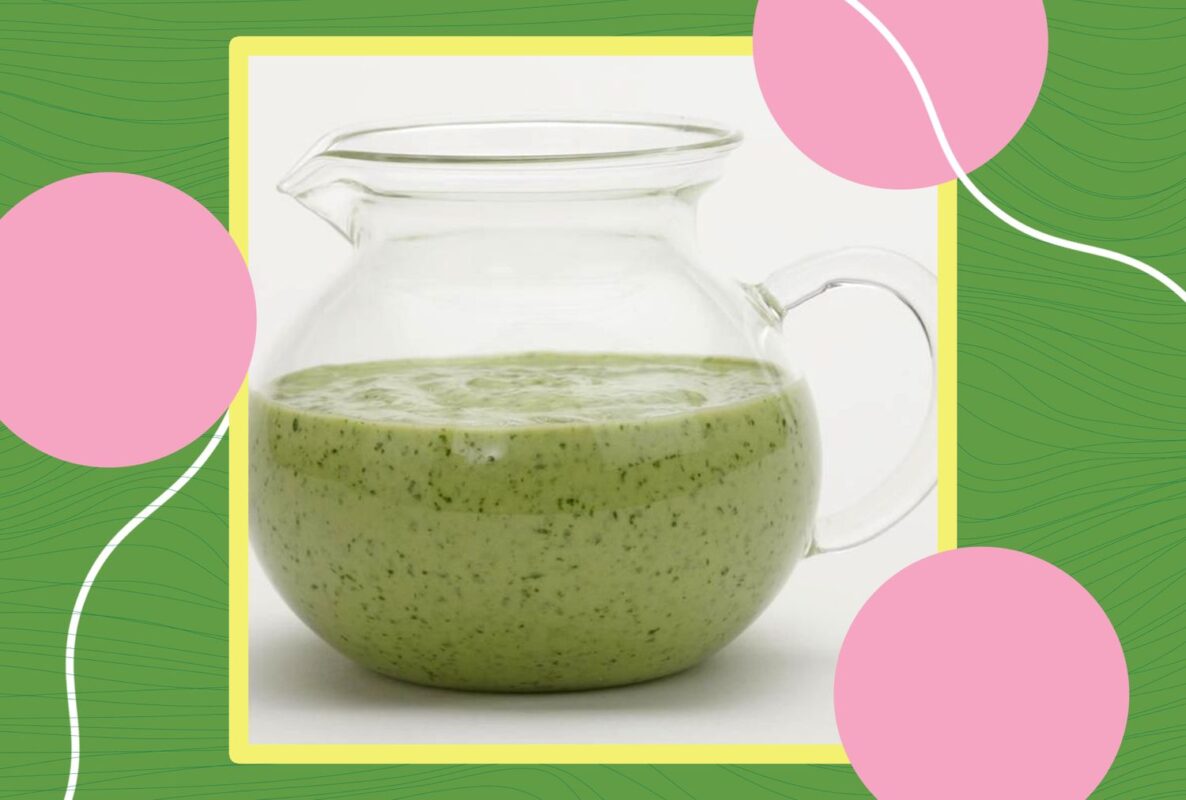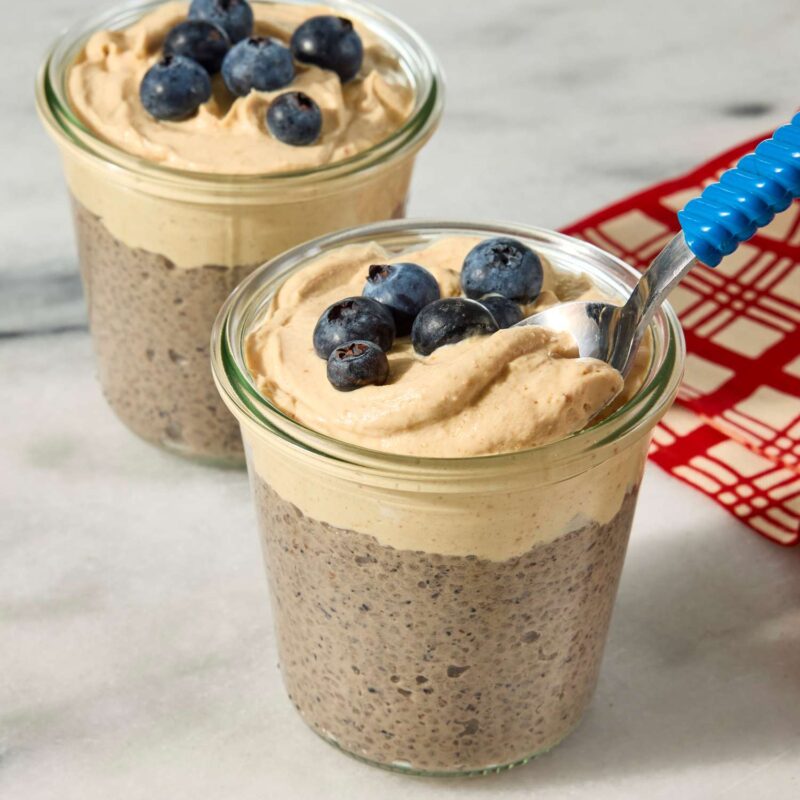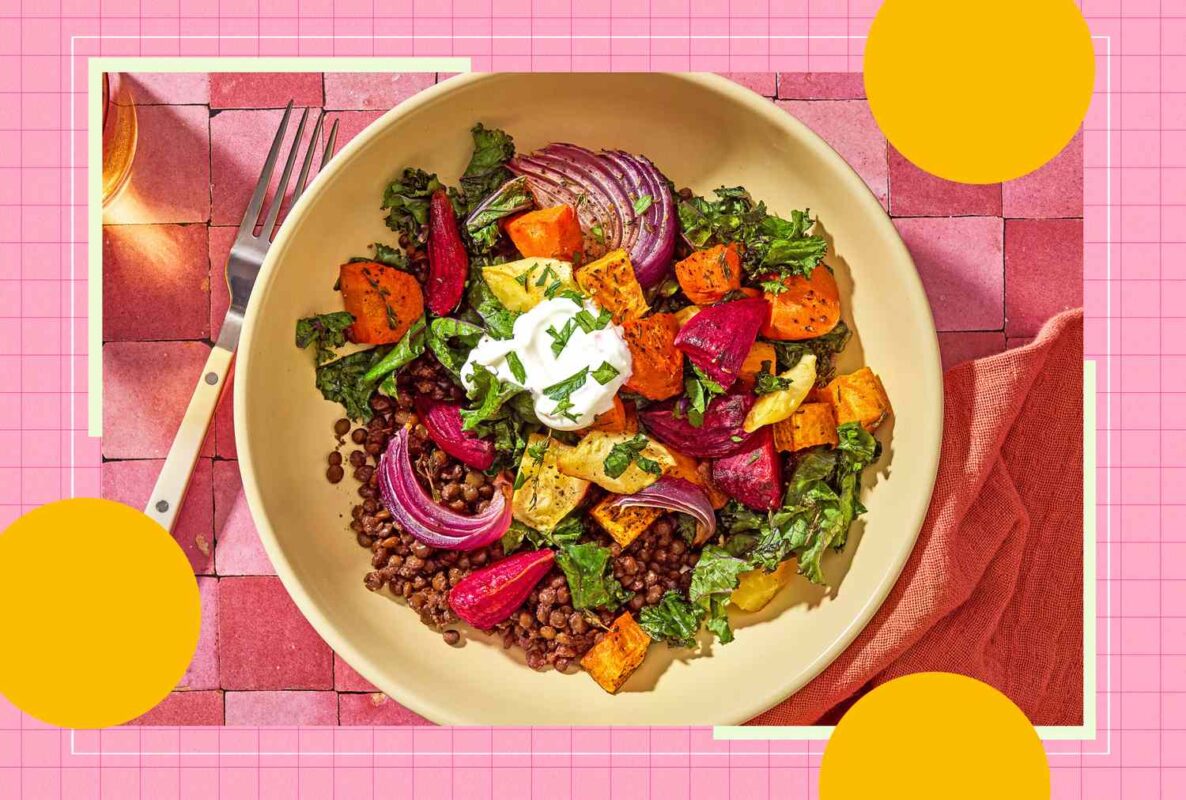Blog
Why Weight Loss After 50 Is Harder and How to Succeed

- After 50, our metabolisms naturally slow down, which can lead to weight gain.
- This may be compounded by hormonal changes, difficulty sleeping and new medications.
- RDs say the trick to weight loss after 50 is replacing old habits with newer, more effective ones.
Weight loss can feel like an uphill battle at any age. But if you’re over 50, you may have noticed it’s become a bit trickier. And it’s not just your imagination. “As we age, muscle mass naturally declines, which lowers your resting metabolic rate, meaning your body burns fewer calories at rest,” says Jamie Lee McIntyre, M.S., RDN. However, that’s not the only reason it’s harder to shed pounds after 50. Hormonal shifts, difficulty sleeping and new medications can also make weight loss more challenging.
Beyond the changes that come with aging, some everyday habits could quietly be making the process even harder. Yet, many of these practices may feel so normal, they might not seem like obstacles at all. So, we asked dietitians to share the top under-the-radar habits that interfere with weight loss after age 50.
Read on to learn the surprising behaviors that could be holding you back and, more importantly, what you can do to move forward.
1. Skipping Strength Training
If you’re all about cardio but rarely hit the weights, you’re missing out on a critical component of weight loss, especially later in life. “Prioritizing strength training can help preserve muscle, boost metabolism and support sustainable weight management after 50,” says Whitney Stuart, M.S., RDN. Why? Muscle is a calorie-burning machine. Yet, as we age, muscle mass naturally declines. So, if you’re not actively working to rebuild or maintain it, your metabolism can slow down. Strength training helps combat this by building muscle, which helps you burn more calories even when you’re not exercising. In fact, studies show that resistance exercises like lifting weights or bodyweight activities can help preserve and even increase muscle mass as we age, laying the foundation for a leaner and healthier body.
Unfortunately, many of us may shy away from strength training, either out of fear of injury or simply because we haven’t heard how important it is. Or maybe you think you need a gym membership or just don’t know where to get started. No problem, says Lauren Harris-Pincus, M.S., RDN. “Simple body work like push ups, planks and squats are easily done at home with no equipment and will help to strengthen large muscle groups as well as build core strength,” she says.
2. Following Fad Diets
Fad diets often promise quick results. Yet, they rarely provide the sustainable solutions necessary for managing weight. While that can be an issue at any age, it can be especially problematic after 50 for several reasons. For starters, many trendy diets are restrictive, often cutting out entire food groups or dramatically reducing calories. While you may see the numbers on the scale dip temporarily, this approach can backfire by slowing your metabolism even further.
To complicate matters, many calorie-cutting diets are also low in protein. “Eating a low-protein, low-calorie diet specifically can backfire by further reducing muscle mass and slowing metabolism even more,” says Stuart. “Without enough protein, the body may break down muscle for energy, which makes it harder to maintain a healthy weight long term.”
As tempting as it may seem to jump on the latest weight loss craze, skip it. You’ll have far greater success with a balanced eating plan that includes plenty of lean protein, fruits, vegetables and healthy fats.
3. Neglecting Sleep
Sleep is often overlooked when it comes to weight loss, but poor sleep can silently hinder your efforts. The reason? After 50, sleep patterns can naturally become more erratic due to lifestyle changes, stress or hormonal shifts., That doesn’t just cause sleepless nights and daytime drowsiness. Sleep deprivation also disrupts hunger-regulating hormones like leptin and ghrelin. This imbalance can lead to increased cravings, particularly for high-calorie foods. That’s not all. Research has also found that people who don’t get enough sleep tend to consume fewer fruits and vegetables, yet eat more fast food, fat and sugar, making them even more likely to gain weight.
It can be helpful to know that some age-related changes in sleep patterns are normal, such as going to sleep earlier at night and waking up earlier in the morning. However, sleep shouldn’t become so elusive that you can’t regularly get the seven to nine hours your body needs. If you’re having difficulty getting enough sleep, talk to your health care provider, who can help you determine the reason and find strategies to help you get the rest you need.
4. Sticking with the Same Eating Habits
With age, our energy needs naturally begin to decline. So, if you’re eating the same way you always have, you might start to gain weight, even if the foods you eat are healthy. Maybe you’ve always finished what’s on your plate or snacked while watching TV. While that might have worked just fine in the past, after age 50, these habits can start to work against you.
“Mindless snacking, especially in the evening, can sabotage weight loss efforts,” says Lisa R. Young, Ph.D., RDN. “Many people eat out of boredom or habit while watching TV, often choosing calorie-dense foods without realizing how much they’re consuming. These extra, unaccounted-for calories can add up quickly.”
If that sounds familiar, take time to sit down at the table to eat without distractions. This will help you focus on enjoying your food and pay attention to your body’s hunger and fullness signals, which may help you eat less.
5. Forgetting to Drink Up
Hydration plays a key role in digestion, metabolism and overall satiety. Yet, as you age, your sense of thirst diminishes. As a result, many older people don’t drink nearly enough fluids. This can make it harder to meet your hydration needs without conscious effort and may even lead to dehydration. In addition, dehydration can mimic hunger, prompting you to eat more at meals or snack more frequently. Because dehydration can also slow your body’s metabolic processes, it can make it harder to burn calories efficiently.
The fix? Aim for at least eight glasses of water a day. For even better weight loss results, try to drink a big glass of water before meals. This simple, effective strategy may help you feel full faster and prevent overeating.
WEIGHT LOSS RECIPES TO TRY
Our Expert Take
Losing weight after 50 can seem tricky, but it doesn’t have to be. The key lies in identifying old habits that work against your goals and replacing them with newer, more effective ones that work for your body today. By incorporating habits like regular strength training, eating a balanced diet, prioritizing sleep, being mindful of portion sizes and drinking enough fluids, you can overcome many of the weight loss challenges that naturally come with aging.
If that sounds like a lot, remember, small, sustainable changes build up over time. Stay patient and be kind to yourself through the process. And, most importantly, focus on feeling strong, healthy and energetic. Because being your healthiest, best self isn’t just about the number on the scale.












